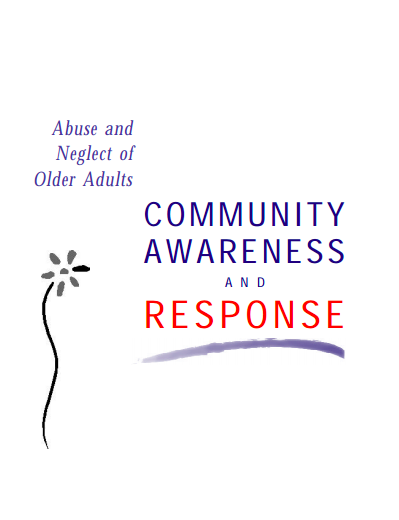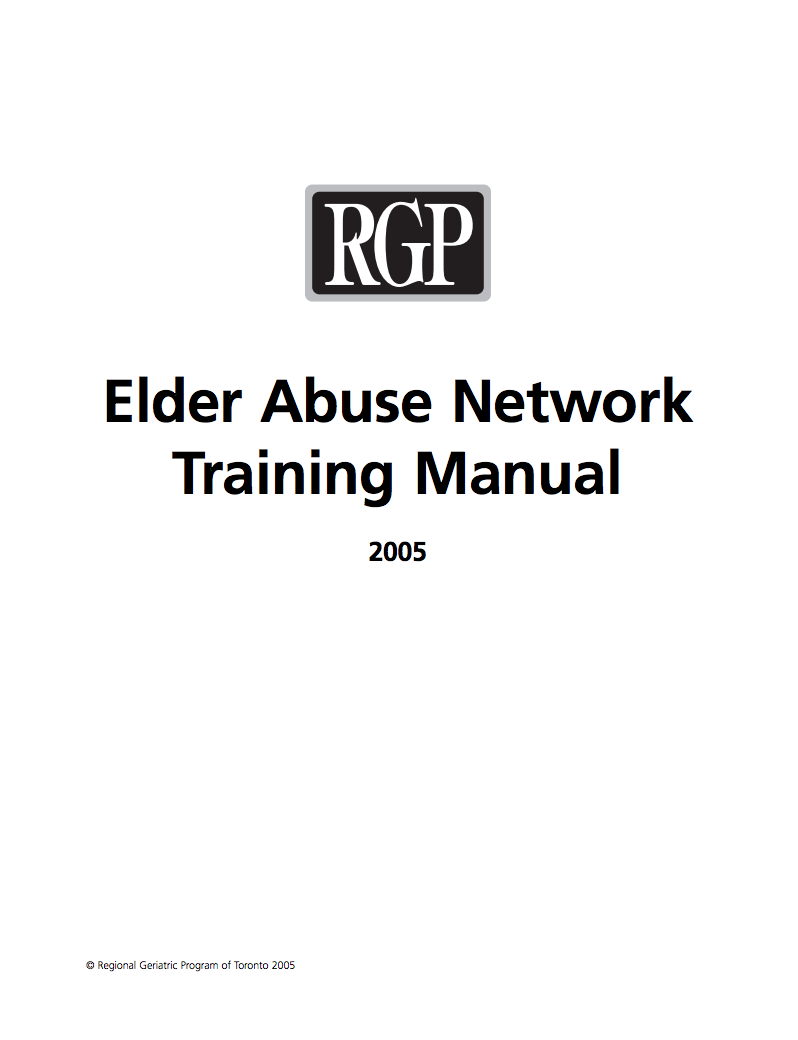 Overall goal is "to provide a learning environment which will promote dialogue and enhance skills of health care providers regarding the early detection and management of elder abuse. Learning objectives At the end of the workshop the following outcomes are expected. Participants will be able to: • Define various types of elder abuse • Understand the precipitating factors for elder abuse (triggers) • Describe a common profile of a “victim” and “abuser” • Recognize elder abuse and apply intervention strategies to individual situations • Appreciate the importance of working with a team (at least one other person) to problem solve issues related to possible elder abuse • Access relevant community resources and information • Gain confidence related to assessing and managing elder abuse cases."
Overall goal is "to provide a learning environment which will promote dialogue and enhance skills of health care providers regarding the early detection and management of elder abuse. Learning objectives At the end of the workshop the following outcomes are expected. Participants will be able to: • Define various types of elder abuse • Understand the precipitating factors for elder abuse (triggers) • Describe a common profile of a “victim” and “abuser” • Recognize elder abuse and apply intervention strategies to individual situations • Appreciate the importance of working with a team (at least one other person) to problem solve issues related to possible elder abuse • Access relevant community resources and information • Gain confidence related to assessing and managing elder abuse cases."
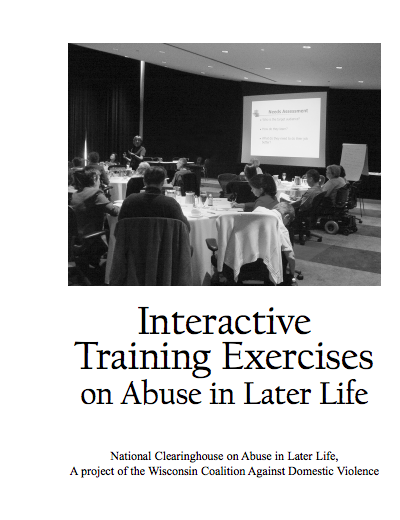 "This manual offers interactive exercises on understanding and responding to abuse in later life. By Bonnie Brandl and Deb Spangler, National Clearinghouse on Abuse in Later Life."
"This manual offers interactive exercises on understanding and responding to abuse in later life. By Bonnie Brandl and Deb Spangler, National Clearinghouse on Abuse in Later Life."
Source: National Online Resource Centre on Violence Against Women (USA)
From the Family Violence Prevention Unit, Health Canada. "This introductory guide to community approaches provides information and an approach that communities can use to develop policies, programs and services that support older adults. It raises questions about perceptions of the issue and is intended to stimulate discussion and action at the community level. Community Awareness and Response: Abuse and Neglect of Older Adults aims to create an environment where older adults feel confident to speak out about abuse and neglect. The main focus of any community effort to address the issue must be to promote the wellbeing of older adults and strengthen their right to self-determination, respect and dignity. Only then will the problem begin to be solved."
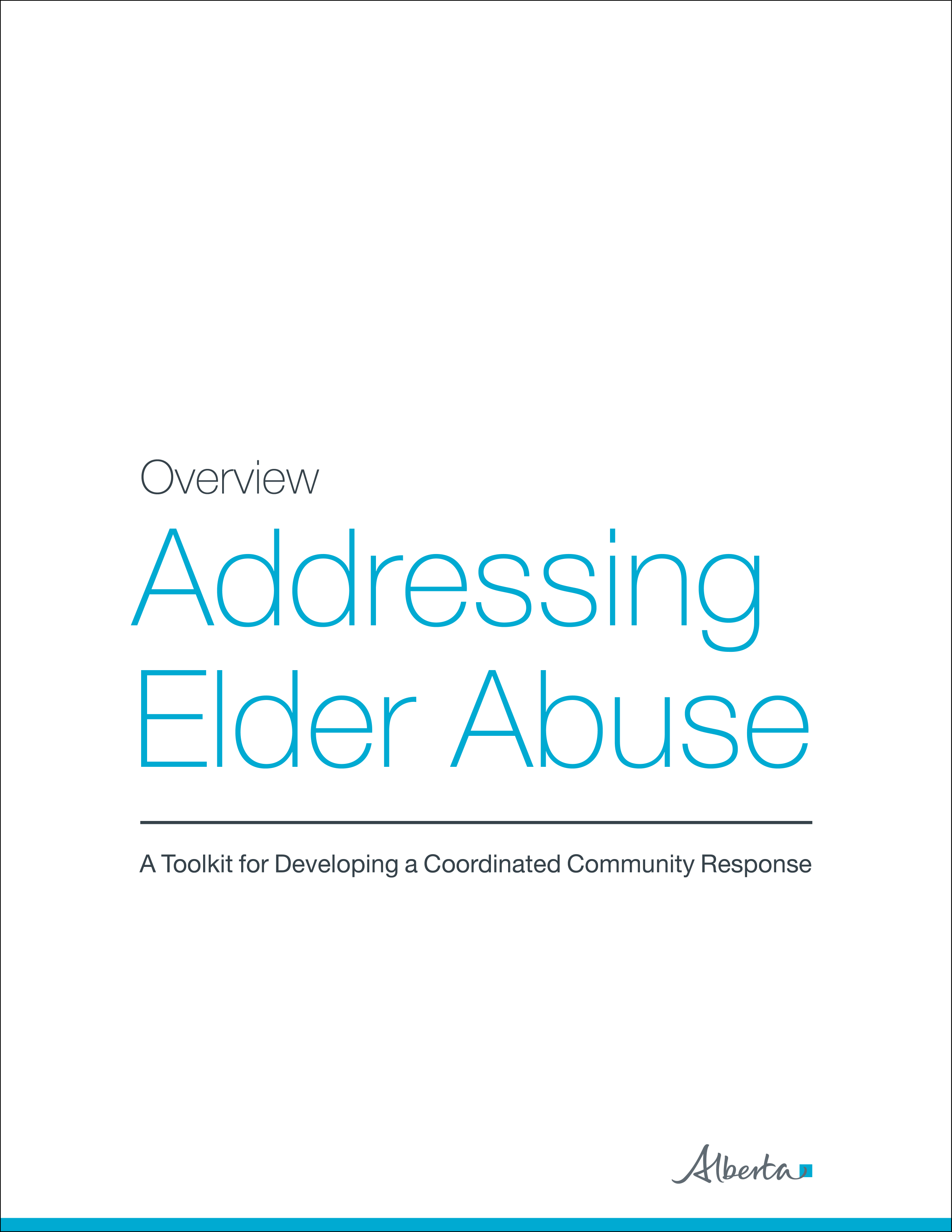 The Government of Alberta has released Addressing Elder Abuse: A Toolkit for Developing a Coordinated Community Response to help communities develop a framework to address elder abuse at the local level.
The Government of Alberta has released Addressing Elder Abuse: A Toolkit for Developing a Coordinated Community Response to help communities develop a framework to address elder abuse at the local level.
This toolkit is intended to help build a community-specific, multi-disciplinary approach to addressing elder abuse. It provides a five-step process that communities, civil society organizations and individuals can use to develop a local coordinated community response (CCR) approach to address elder abuse.
Who is this toolkit for?
- Seniors centres
- Community organizations
- Police and victim services
- Health service providers
- Housing providers
- Organizations servicing Indigenous, LGBTQ and new Immigrant communities
- Anyone interested in addressing elder abuse in their community
This eight-page summary provides an overview of the characteristics of a Coordinated Community Response and of the five-step process.
Toolkit:
You can access the toolkit here.
Evaluation of the work
In 2020, Alberta Seniors and Housing evaluated the CCR model and created two resources - an infographic and a fact sheet - to share information on this promising practice in Alberta. You can access both here (click on the resource to view and download):
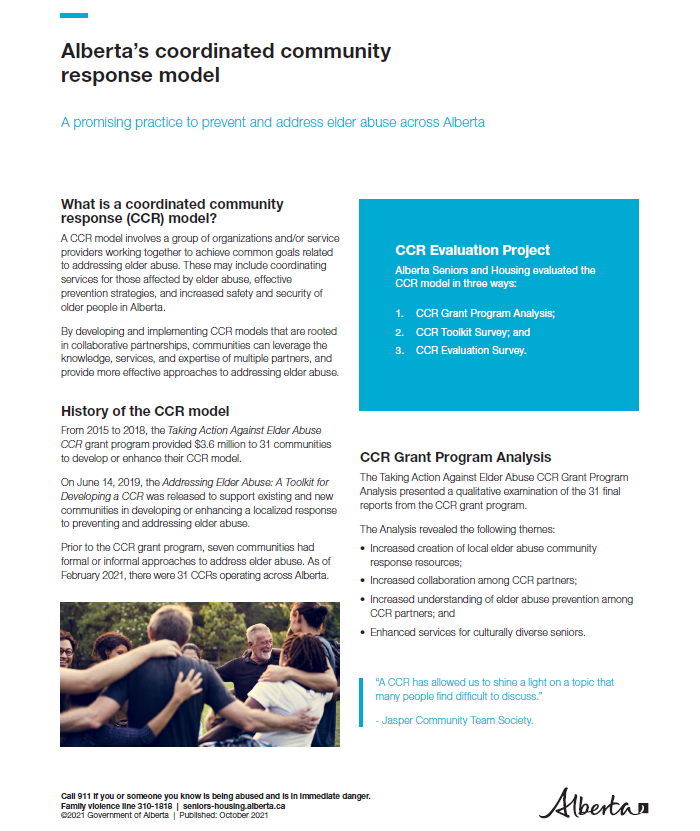
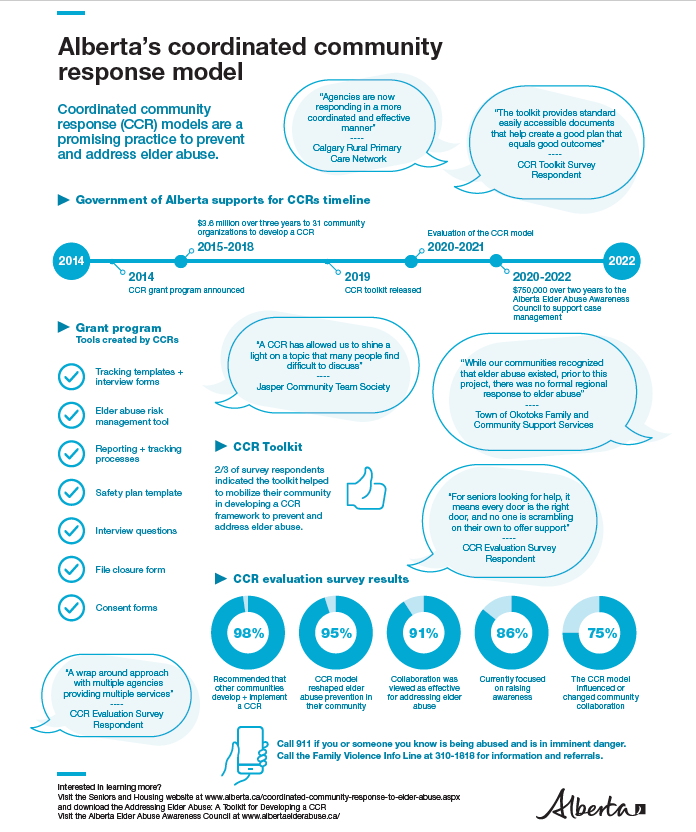
Source: Government of Alberta
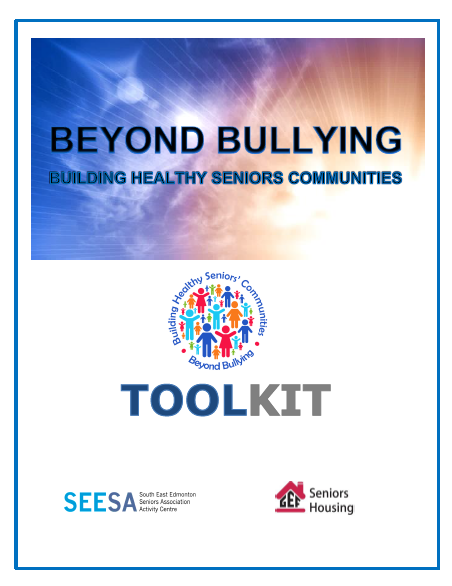
''This is a made-in-Alberta community development project, by seniors, for seniors. The South East Edmonton Seniors Association Activity Centre’s (SEESA) mission is “To provide programs and services that will help seniors maintain and enhance their quality of life”. The mission at Greater Edmonton Foundation (GEF) Seniors’ Housing is “Leaders in friendly, affordable, secure housing and services for seniors”.
In 2011, when local residents noted disturbing behaviours in their seniors’ housing, they designed a presentation to identify and talk about bullying behaviour with other seniors and the larger community. SEESA supported the development of a program to address this complex problem. Three years later the Government of Canada’s New Horizon’s for Seniors program and GEF Seniors’ Housing partnered with SEESA staff and volunteers to further develop this program.
A program and tookit have been developed to help prepare seniors for communal living, negotiate healthy relationships, and explore ways to meet the immediate needs of both those who suffer the effects from bullying behaviours, and those who use bullying behaviours. We invite you to watch the Beyond Bullying: Building Healthy Seniors’ Communities video (below). We welcome feedback from anyone who has watched the video, attended a presentation or participated in a workshop to assist us with improving the Beyond Bullying program.''
VIDEO:
Page 10 of 31


